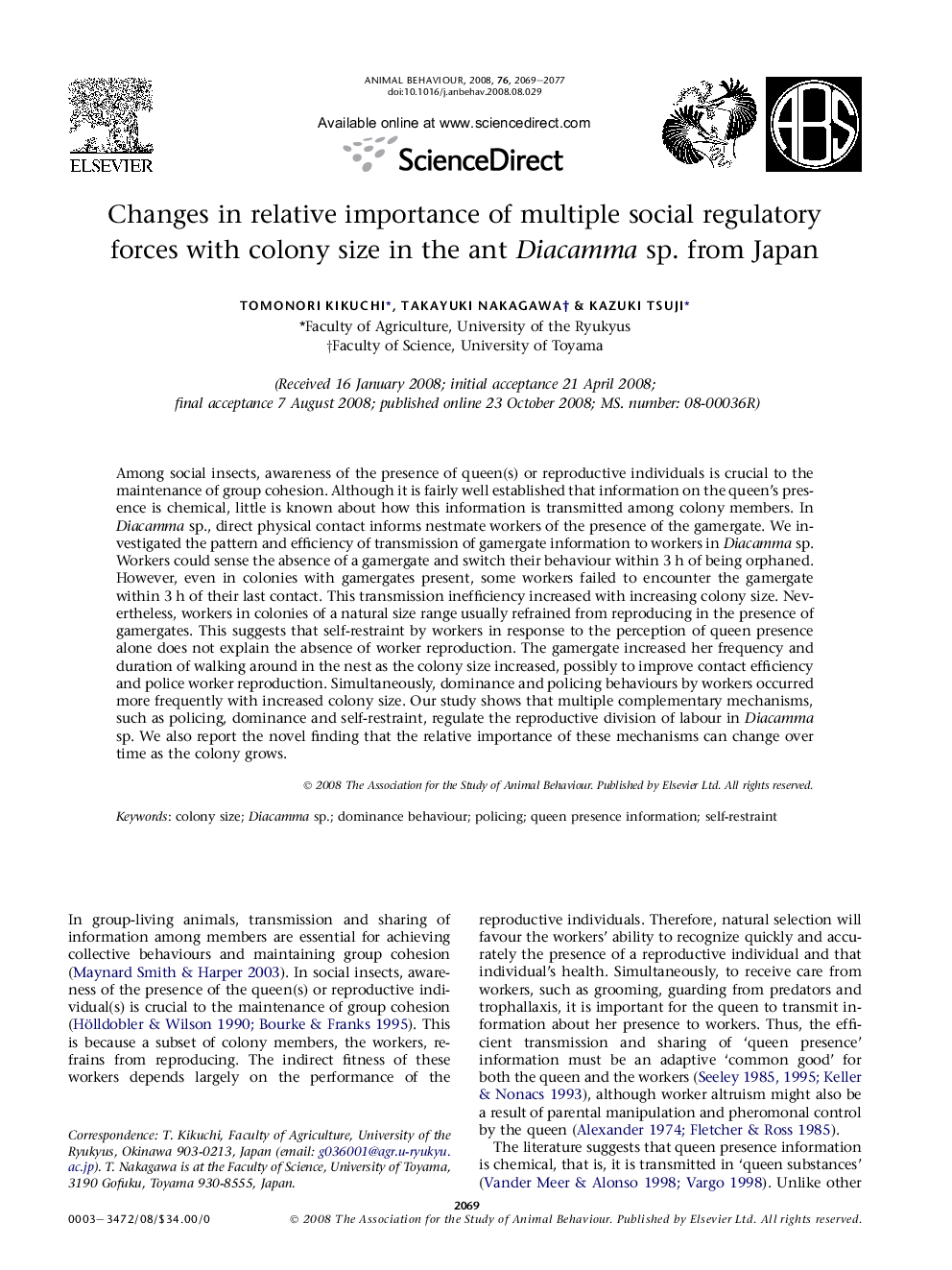| Article ID | Journal | Published Year | Pages | File Type |
|---|---|---|---|---|
| 2418510 | Animal Behaviour | 2008 | 9 Pages |
Among social insects, awareness of the presence of queen(s) or reproductive individuals is crucial to the maintenance of group cohesion. Although it is fairly well established that information on the queen's presence is chemical, little is known about how this information is transmitted among colony members. In Diacamma sp., direct physical contact informs nestmate workers of the presence of the gamergate. We investigated the pattern and efficiency of transmission of gamergate information to workers in Diacamma sp. Workers could sense the absence of a gamergate and switch their behaviour within 3 h of being orphaned. However, even in colonies with gamergates present, some workers failed to encounter the gamergate within 3 h of their last contact. This transmission inefficiency increased with increasing colony size. Nevertheless, workers in colonies of a natural size range usually refrained from reproducing in the presence of gamergates. This suggests that self-restraint by workers in response to the perception of queen presence alone does not explain the absence of worker reproduction. The gamergate increased her frequency and duration of walking around in the nest as the colony size increased, possibly to improve contact efficiency and police worker reproduction. Simultaneously, dominance and policing behaviours by workers occurred more frequently with increased colony size. Our study shows that multiple complementary mechanisms, such as policing, dominance and self-restraint, regulate the reproductive division of labour in Diacamma sp. We also report the novel finding that the relative importance of these mechanisms can change over time as the colony grows.
